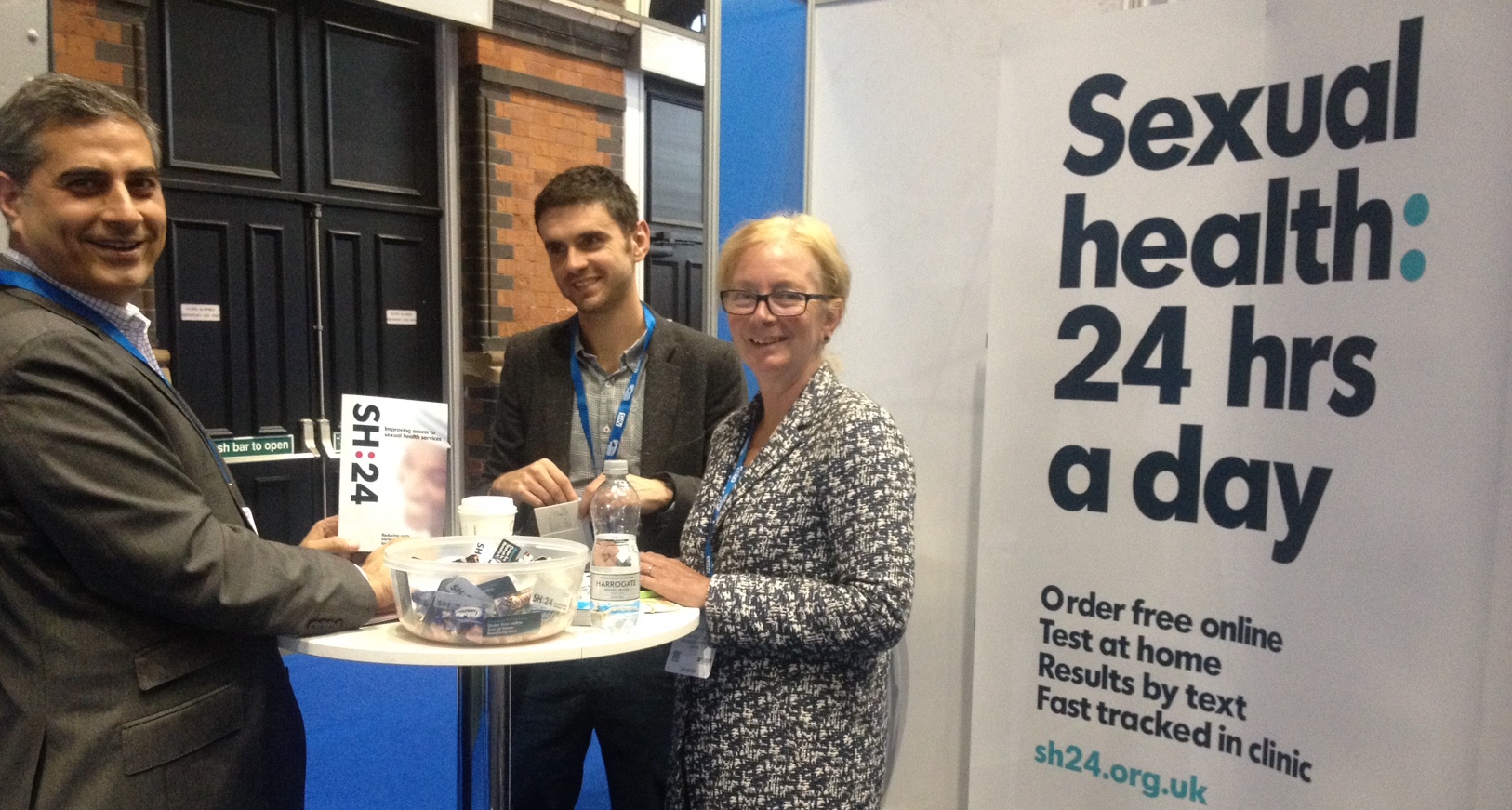Vishal Gulati, Chair of the Digital Health Forum and VC at Draper Espirit meets Gillian and Glyn of SH:24
We’re currently exploring ways to make SH:24 accessible to people outside of Southwark and Lambeth, so this week’s NHS England led Health and Care Innovation Expo was a great opportunity to find out what health and professionals about the service and also find out what other people are up to. There are countless innovative health initiatives springing up in and outside the NHS and it’s great to be able to hear about what has and hasn’t worked in their journey.
What did people think of us?
Encouragingly, the question we heard most was ‘can people in my area use this?'.Youth workers, sexual health and other social care professionals all told us they would love to be able to recommend SH:24 to the people they work with.
And it’s not just people in public and voluntary sector health care that like what we’re doing healthcare VC, Vishal Gulati, stopped by our stand and told us
"This is the way all sexual health services will be provided in the future"
We certainly hope so!
One public health worker even suggested to us that our service could help identify and target antibiotic resistant strains of STIs in the locality (that’s one we’ll need to speak to our clinical leads about, confidentiality is the core of our service delivery and that won’t change)
What did we see?
DrNow will see you..erm...now
There are so many exciting projects in health, we could write a blog on this alone. We saw P1vital’s facial expression emotional recognition test pilot that can predict someone’s response to depression medication within 7-9 days of treatment (as opposed to 6 weeks currently). We also had a demo of the new private GP service DrNow which gives people video access to GPs for a monthly fee, as well as the ability to purchase express-delivery medication where needed. It’s a really well designed app, and for those that can afford it, it will be a time and worry saver.
In the Digital Zone we heard NHS England and the Tinder Foundation discuss the Widening Digital Participation programme. Our users have to use access our service online, however, there’s still a significant number of the UK population who aren’t online, and they’re often people who are more likely to be excluded from mainstream health services. The Tinder Foundation has trained 150k digitally excluded people and a third of these said they reduced GP visits and saved time and money after the training. Those trained include the disabled, mentally ill, homeless and older people. As STIs have increased in older populations in recent years, it’s great that more older people will be able to access services like ours, and raises questions for us about how we can best reach them.
Jenny with two Chinese midwives she met through social media.
Another highlight was hearing how social media has helped midwife Jenny Clarke become a more compassionate, and more knowledgeable professional - she gave some great advice to other NHS professionals wanting to use social media to create more compassionate connection including a story of how connecting with someone online helped her recognise and better support a woman with a mental health condition while giving birth.
Finally we joined a pop university workshop on co-production and how this can be done meaningfully. Brook Participation and Volunteer Co-ordinator, James, talked about their Salford project development and how they treat young people as experts by experience. A workshop participant from another region spoke of the massive increase in access to sexual health services by moving the service from a hospital to a community leisure centre - actioned on the basis of user feedback.
The future of health
Obviously, digital will play a huge role in the future of health services, but all of this work is for and about people; people who use services and people who deliver them. Understanding local populations and developing effective, collaborative partnerships with other professionals and organisations, listening to people that access services and care are things that digital tools can’t replace, but can support.
In the context of the Widening Digital Participation programme, one speaker mentioned that sometimes when they had trained people up to manage some of their health needs digitally, the digital resources available weren’t very usable and more needs to be done in quality assuring digital health. This is one area we know we’re getting right, we’ve involved people who use services in all phases of development - we have a team of curious-minded people who ask questions of, and listen to, the people we want to support.
And on the subject of people, we’re still looking for an excellent sexual health nurse to join our team, if you’d like to play a role in the people-centred development of our service please check out our ad and get in touch with any questions you have.



